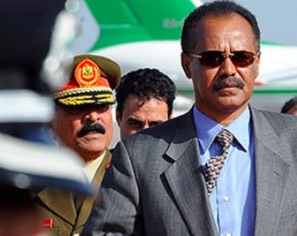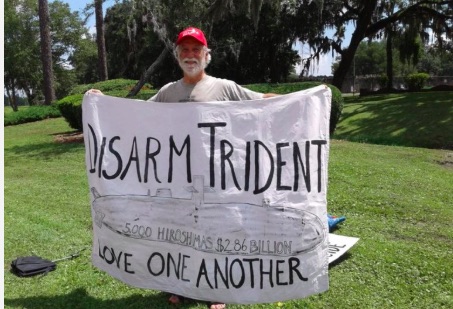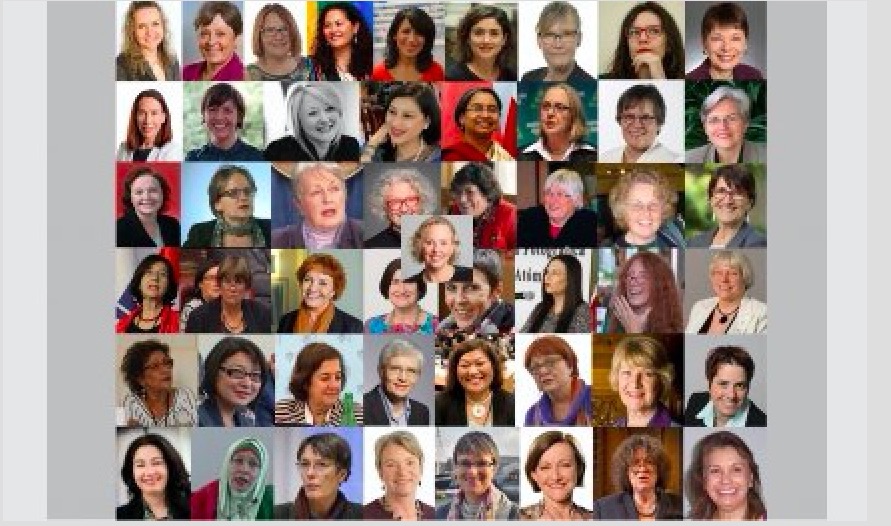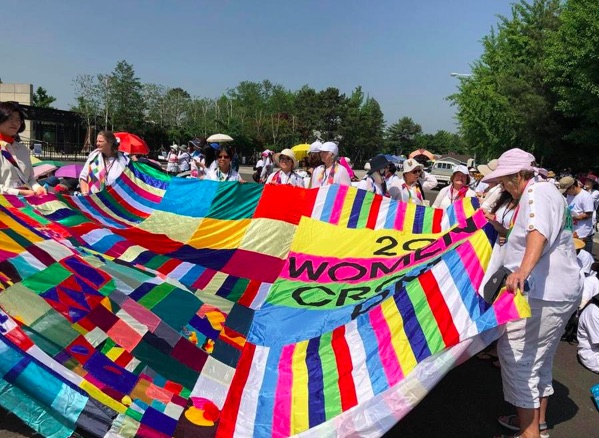DISARMAMENT & SECURITY .
An article by Alyn Ware for Indepth News
May 14, 2018 was supposed to see the opening at the United Nations of a three-day High-Level Conference on Nuclear Disarmament, scheduled to discuss “effective nuclear disarmament measures to achieve the total elimination of nuclear weapons, including, in particular, on a comprehensive convention on nuclear weapons.”
The UN General Assembly decided five years ago to hold such a conference in 2018, following a series of annual, one-day, high-level meetings at the United Nations.
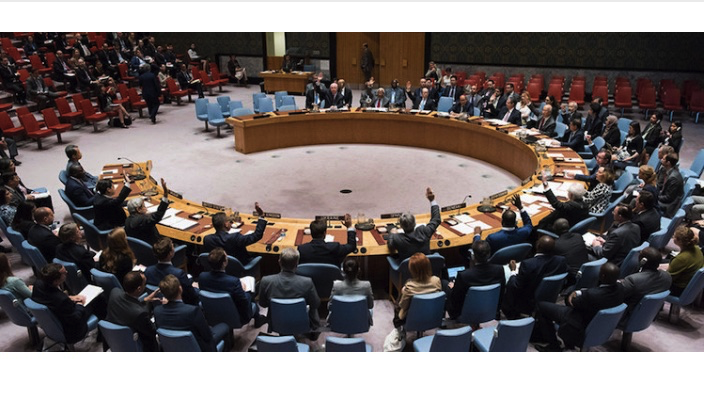
Security Council meeting on Maintenance of international peace and security, Nuclear non-proliferation and nuclear disarmament. Credit: UN Photo/Loey Felipe
The importance of the 2018 High-Level Conference only increased during these five years with a range of nuclear-weapons related conflicts heating up – Russia vs. NATO, North Korea vs. USA, India vs. Pakistan – to such an extent that the Bulletin of the Atomic Scientists in January 2018 moved the hands of the Doomsday Clock to 2 Minutes to Midnight. This is the closest humanity has been to nuclear Armageddon since the Cuban Missile Crisis in 1962.
Uncertainty over the future of the Iran nuclear deal following the withdrawal of the United States on May 8 has only added fuel to the nuclear fire.
A High-Level Conference (scheduled for May 14-16) would have provided a powerful platform for world leaders to support diplomacy and nuclear-risk reduction in these nuclear-related conflicts, as well as to advance nuclear disarmament measures such as the Treaty on the Prohibition of Nuclear Weapons which was concluded by non-nuclear States at the UN in July 2017 but has not yet entered into force.
Right at a time when such a conference is needed the most, it has surprisingly been postponed to an uncertain future date.
Civil society representatives, many of whom had already booked their flights to New York for the conference, were left perplexed. The High-Level Conference had been initiated by the 120-nation Non-Aligned Movement (NAM), which in the past has led on a number of nuclear disarmament initiatives, such as challenging the legality of the threat and use of nuclear weapons in the International Court of Justice (ICJ) in 1994.
Many of the Non-Aligned countries were also active in the 2017 negotiations that concluded the Treaty on the Prohibition of Nuclear Weapons. So why would the NAM now reverse itself and drop such an important event?
The Indonesian Mission (Embassy) to the UN, which serves as the UN Coordinator for NAM, indicated that they had not found a suitable country to chair the conference. This indeed appears to be true. Several candidates invited to chair the conference had declined. But this still begs the question why? Wouldn’t one or more of the NAM countries want to chair the conference and elevate their standing in the international community as a broker for peace and disarmament?
It appears from informal conversations with some NAM members that there are deeper reasons, most of which fall back to the long-arm influence and intransigence of nuclear-armed States on nuclear issues. This plays out in a number of ways.
Firstly, it appears that the NAM was unsuccessful in persuading leaders of nuclear-armed and allied states to commit to coming to the UN High-Level Conference. Having a conference where these states are represented only at ambassador level (or even lower) would undermine the conference and would limit the degree to which these countries would commit to any nuclear risk-reduction or disarmament measures.
This argument would be totally understandable if the NAM had indeed put strong pressure and invested political capital to move the leaders of nuclear armed and allied states to come. But this did not seem to be the case. Leaders of countries are not moved to come to UN Summits or High-Level Conferences solely on the basis of a UN resolution.
They would be so moved if NAM leaders announced that they themselves were coming to the UN conference at the highest level (President or Prime Minister), publicly called on the nuclear armed and allied states to do the same and made this a priority in their bilateral meetings with the leaders of the nuclear armed and allied States.
The fact that NAM did not appear to do this indicates that something else is happening within NAM that appears to have reduced their collective resolve and impact on nuclear disarmament issues.
Indeed, since the end of the Cold War, a number of NAM members, like many other non-nuclear States, have developed closer trade, financial and political relationships with specific nuclear-armed States. They appear hesitant to do anything that would seriously impact on such relationships. These countries are ready to support nuclear disarmament statements and resolutions that look good but have little impact on their nuclear-armed friends. They are hesitant to adopt measures that might impact significantly on the practices of the nuclear-armed states and incur the wrath or even counter measures from them.
(Continued in right column)
Question related to this article:
Can we abolish all nuclear weapons?
(Continued from left column)
This was evident, for example, in the negotiations of the Treaty on the Prohibition of Nuclear Weapons. The nuclear-armed States and the allied states under extended nuclear deterrence relationships have all indicated that they won’t join the Treaty which means that the general Treaty obligations will not apply to them.
However, there were proposals to include Treaty provisions that would have had direct impact on practices of the nuclear-armed States. These included prohibiting transit of nuclear weapons in the land, sea and air spaces of Treaty parties, and to ban financing of nuclear weapons, i.e. investments in nuclear weapons corporations. The fact that the states negotiating the Treaty rejected these proposals demonstrated their unwillingness to confront the nuclear-armed States.
This was also evident in the recent case taken by the Marshall Islands against nuclear-armed States in the ICJ. This was a direct legal challenge of the nuclear-armed States violating their nuclear disarmament obligations.
However, not one other non-nuclear country joined the Marshall Islands in the case. None wanted to come into direct confrontation with the nuclear-armed States. As a result, the ICJ determined that it was not a real legal dispute regarding the disarmament obligation, and they dismissed the case.
It appears that this low level of resolve by NAM and other non-nuclear States to confront the nuclear-armed States is not the only reason for the deferral of the UN High-Level Conference.
Another reason appears to be that the heightened tensions between nuclear-armed States make it difficult for even the strongest disarmament advocates and the best ‘bridge-builders’ to succeed in bringing the nuclear-armed States together to cooperate in such a forum.
An indication of this is the responses of the nuclear-armed States to two recent initiatives by Kazakhstan, a country that had been incredibly influential and successful as a bridge-builder at the end of the Cold War. Kazakhstan was instrumental in bringing Russia and the United States together in 1991 to cooperate on nuclear threat reduction, the dismantling of the nuclear weapons in Kazakhstan, Ukraine and Belarus and the securing of nuclear materials in these countries.
However, two of Kazakhstan’s more recent attempts to encourage cooperation between nuclear-armed States (and especially USA and Russia) have had much less success. These included the Universal Declaration for a Nuclear Weapon-Free World, which did not get unanimous support, and the Security Council session on confidence building and weapons of mass destruction which Kazakhstan President Nazarbayev chaired on January 18, 2018.
The U.S. used the opportunity of the Security Council session not to discuss confidence-building measures, but rather to launch a multifaceted attack against Russia. Russia then responded in kind. This, and other indications of increased antagonism between nuclear-armed States, appears to have convinced some NAM countries that now was not an optimum time to hold the High-Level Conference.
On the other hand, it is understood that other NAM countries believed that this dynamic and other tensions and conflicts such as in North-East Asia, were the very reason that a High-Level Conference would be so important at this time.
Many civil society organizations share the latter view. “If ever there was a time when there was a need for a high-level summit … it is now,” said Jackie Cabasso, executive director of Western States Legal Foundation speaking at a press conference at the United Nations on March 28.
“One of the things I think we’re here to say is that this opportunity should be seized upon by the nuclear powers which are confronting each other now in a very, very dangerous way that threatens all of us,” continued Cabasso. “This high-level conference could provide support and encouragement especially as it comes between the planned summit between the two Koreas in April and the U.S.-North Korea summit in May/June.”
There is concern that the postponing of the UN High-Level Conference might be a sign of ‘wet feet’ from the Non-Aligned Movement leading to it being cancelled altogether. “NAM needs to hear from civil society and from other non-nuclear governments that the High-Level Conference must proceed, either later in 2018 or in 2019,” says John Hallam, Convener of the Abolition 2000 Nuclear Risk Reduction Working group.
“The threats to humanity and the planet from the conflicts and policies of the nuclear armed States are too high, too risky, and too important to leave to them alone. The High-Level Conference is vital to pull them back from the nuclear abyss and set the world on a path to nuclear disarmament,” he adds.
Civil society action has been successful in the past in re-building the resolve of NAM to take action in the face of strong opposition from the nuclear-armed States.
In 1993, as a result of pressure from the nuclear-armed States, the NAM withdrew their resolution to the United Nations requesting the International Court of Justice to rule on the illegality of the threat or use of nuclear weapons. At that time, it appeared as though the initiative was lost.
However, a coalition of over 700 civil society organizations took action and convinced the NAM to resist the pressure from the nuclear-armed States and to re-submit the resolution to the UN General Assembly in 1994. The result was a successful vote in the UN General Assembly, followed by an historical case where the court affirmed the general illegality of the threat and use of nuclear weapons and the universal obligation to achieve nuclear disarmament.
A similar campaign by civil society in support of the UN High-Level Conference could convince NAM to move the UN General Assembly this October to re-schedule the UN High-Level Conference for 2019. Civil society organizations are meeting in New York to discuss the issue.
